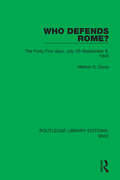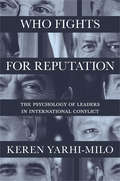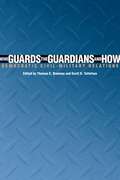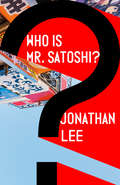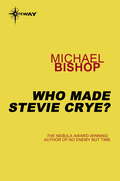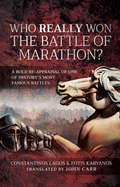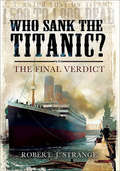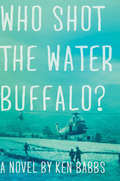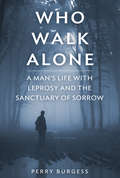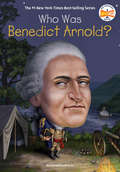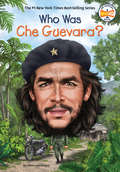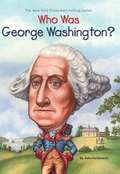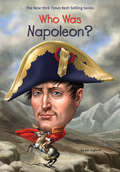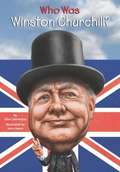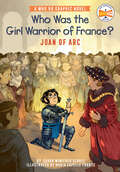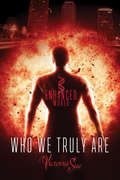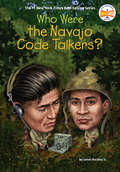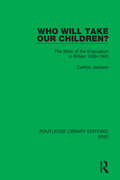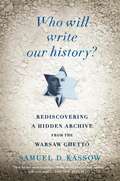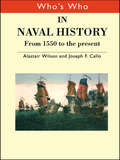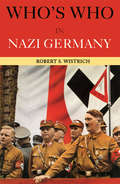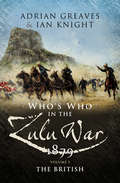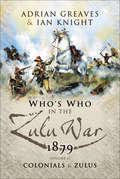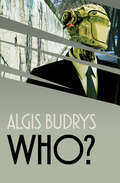- Table View
- List View
Who Defends Rome?: The Forty-Five days, July 25–September 8, 1943 (Routledge Library Editions: WW2 #45)
by Melton S. DavisThis book, first published in 1972, examines the tumultuous period between Mussolini’s dismissal and the German occupation of Rome 45 days later. Double-dealing, treachery, vindictiveness, cowardliness, contradictory orders are the hallmarks of this time, and the protagonists include Mussolini, Hitler, Eisenhower, Maxwell Taylor, the Italian King, Churchill and Badoglio. Its was then that Italy arranged a virtually meaningless armistice with the Allies, the terms of which were never clear to anyone. This book reconstructs these days with a clear and thorough analysis, using new evidence not previously available to researchers.
Who Fights for Reputation: The Psychology of Leaders in International Conflict (Princeton Studies in International History and Politics #156)
by Keren Yarhi-MiloHow psychology explains why a leader is willing to use military force to protect or salvage reputationIn Who Fights for Reputation, Keren Yarhi-Milo provides an original framework, based on insights from psychology, to explain why some political leaders are more willing to use military force to defend their reputation than others. Rather than focusing on a leader's background, beliefs, bargaining skills, or biases, Yarhi-Milo draws a systematic link between a trait called self-monitoring and foreign policy behavior. She examines self-monitoring among national leaders and advisers and shows that while high self-monitors modify their behavior strategically to cultivate image-enhancing status, low self-monitors are less likely to change their behavior in response to reputation concerns.Exploring self-monitoring through case studies of foreign policy crises during the terms of U.S. presidents Carter, Reagan, and Clinton, Yarhi-Milo disproves the notion that hawks are always more likely than doves to fight for reputation. Instead, Yarhi-Milo demonstrates that a decision maker's propensity for impression management is directly associated with the use of force to restore a reputation for resolve on the international stage.Who Fights for Reputation offers a brand-new understanding of the pivotal influence that psychological factors have on political leadership, military engagement, and the protection of public prestige.
Who Guards the Guardians and How
by Thomas C. BruneauThe continued spread of democracy into the twenty-first century has seen two-thirds of the almost two hundred independent countries of the world adopting this model. In these newer democracies, one of the biggest challenges has been to establish the proper balance between the civilian and military sectors. A fundamental question of power must be addressed-who guards the guardians and how? In this volume of essays, contributors associated with the Center for Civil-Military Relations in Monterey, California, offer firsthand observations about civil-military relations in a broad range of regions including Latin America, Africa, Asia, and Eastern Europe. Despite diversity among the consolidating democracies of the world, their civil-military problems and solutions are similar-soldiers and statesmen must achieve a deeper understanding of one another, and be motivated to interact in a mutually beneficial way. The unifying theme of this collection is the creation and development of the institutions whereby democratically elected civilians achieve and exercise power over those who hold a monopoly on the use of force within a society, while ensuring that the state has sufficient and qualified armed forces to defend itself against internal and external aggressors. Although these essays address a wide variety of institutions and situations, they each stress a necessity for balance between democratic civilian control and military effectiveness.
Who Is Mr. Satoshi?
by Jonathan LeeA dazzling novel spanning two continents—and six decades of secrets—Who is Mr. Satoshi? is a &“quietly masterful&” (The Independent) work of fiction from the author of High Dive and The Great Mistake.When his mother dies, Rob &“Foss&” Fossick—a fortysomething photographer whose best days already seem to be behind him—discovers amongst her possessions a package addressed to a &“Mr. Satoshi.&” Tasked with locating this mysterious figure from his mother&’s past—and with the urging of his agent, keen for him to return to work—Rob travels to Japan. There, with the help of a love hotel receptionist, he follows Mr. Satoshi&’s trail from the bright lights of Tokyo to the northern city of Sapporo, where he must come to terms with his family&’s ghosts—and his own.
Who Made Stevie Crye?
by Michael BishopFor Mary Stevenson Crye, a beautiful young housewife, life had been wonderful. Loving husband, two delightful children, meaningful existence in a small Southern community. Then it all fell apart: with the sudden, unexpected death of her husband, Stevie must struggle to earn a living as a free-lance writer. When her typewriter - the sole economic support for her surviving family - breaks down, Stevie begins to receive demonic messages through the machine, the prelude to a living nightmare of satanic emissaries, ghouls from beyond the grave, and the revelation of an unrequited curse over the Crye household. For Mary Stevenson Crye, the nightmare is about to begin . . .
Who Really Won the Battle of Marathon?: A Bold Re-appraisal of One of History's Most Famous Battles
by Constantinos Lagos Fotis Karyanos“An excellent book” that takes a new look at the historic clash between the ancient Greeks and Persians (Army Rumour Service).The Battle of Marathon in 490 BC, in which an Athenian-led Greek force defeated a Persian invasion, is one of the most decisive battles in antiquity, studied for centuries. It is famed as a triumph of the Greek hoplite heavy infantry phalanx against massively superior Persian numbers. But this exciting reassessment of the evidence, including new archaeological findings, overturns many long-held assumptions. In particular, the authors argue that the Greek numerical inferiority was less marked than previously thought, largely because the hoplites were accompanied by many light infantrymen who are given unprecedented credit for their role in the fighting. The contribution of these poorer citizens, it is argued, led to the immediate strengthening of democracy in Athens.Also tackled is the much-debated mystery of the whereabouts of the Persian cavalry, generally thought to have been absent on the day of battle. Their bold answer is that it was not only present but played a central role in the fighting. However, the Greeks managed to defeat the Persian cavalry by their ingenious use of the terrain. The authors also claim to have located the site of the Greek camp. This thoroughly researched and compelling reassessment is an exciting new take on this justly famous event.
Who Sank the Titanic?: The Final Verdict
by Robert J. Strange"Designed as the technological marvel of her age, RMS Titanic claimed to be the largest, strongest, safest ship of the early 20th Century; a triumph of centuries of Great Britains unrivaled shipbuilding expertise. Yet nothing could be further from the truth. The 1500 American and British victims of RMS Titanic went to their watery graves never knowing that much of the ship was imperfectly forged from cheap and recycled scrap-iron and that the tragedy was caused by a chain of gross negligence and greed.Crime investigator Robert Strange has studied scientific, forensic evidence from metal raised from the ships carcass miles deep on the ocean floor, and secrets hidden for a hundred years within the archives of the shipyard that built and launched the Titanic, to answer the question: Who Sank the Titanic?Who Sank the Titanic: The Final Verdict examines the intense cost-cutting pressures which contributed to Titanics demise and one of the greatest loss-of-life disasters in maritime history. The book uncovers gross negligence in every area of the ships planning and construction and accuses her owners, her planners, her builders and the Government ministers who watched her set sail of complicity in one of the greatest mass-homicides in history. Robert Strange is a highly experienced producer and director of TV programs both in the UK and US. He has produced series for the BBC, ITV, Channel Four and satellite channels including Panorama, Dispatches, Cutting Edge and True Stories. A one-time Fleet Street investigative reporter and crime correspondent, he has been fascinated by the Titanic disaster and this book is the result of five years of extensive research."
Who Shot the Water Buffalo?: A Novel
by Ken BabbsThis debut novel of the Vietnam War from the veteran and famous Merry Prankster is a &“cross between Joseph Heller and Hunter S. Thompson&” (Booklist). Lt. Tom Huckelbee, leathery as any Texican come crawling out of the sage, and Lt. Mike Cochran, loquacious son of an Ohio gangster, make an unlikely pair training to be marine corps chopper pilots on their way to Vietnam. But they soon go through a strange transformation together—from a couple of know-nothing young men straight out of flight school into marine aviators caught in the middle of a disorienting war. Tough and comical, quiet and boisterous, and always vivid and poetic, Ken Babbs—who cowrote The Last Go Round with fellow Prankster Ken Kesey—is at the top of his craft in this debut novel. Who Shot the Water Buffalo? manages to capture the tumult of the 1960s in all its guts and glory through the eyes of a young man discovering what it means to be beholden to another. &“An impeccable, humorous heirloom, a shock of napalm that smells like . . . victory.&” —Publishers Weekly (starred review)
Who Walk Alone
by Perry BurgessWho Walk Alone, first published in 1940, is author Perry Burgess' moving account of the life of Ned Langford, then a patient at the leper colony on Culion Island, Philippines (known as the "Sanctuary of Sorrow"). Langford had first gone to the Philippines as a volunteer in the Spanish-American War, and while there fell in love with a Filipino girl named Carita. Two years later, when back in America, Langford learned that Carita's brother had contracted leprosy, and nine years after that, Langford learned that he, too, was a victim of the disease. He underwent a year of treatment in New York; then chose exile to the Culion colony, where he was to spend the next 25 years. During that time, he helped organize work and businesses in the community, and married Carita, herself ill with leprosy (and later cured). Who Walk Alone remains a classic account of conditions in a leper colony (before modern-day treatments were known), as well as a source of inspiration, hope, and courage when faced with what could have been overwhelming adversity. Included are 17 pages of illustrations.
Who Was Benedict Arnold? (Who Was?)
by James Buckley Who HQFind out how this one-time American hero became the country's most notorious traitor.As a young child, Benedict Arnold never shied away from a fight. So when the French and Indian War began in 1754, Benedict was eager to join the militia and fight for the British colonies in America. And when he was eighteen years old, he got his chance. Arnold had no idea that less than twenty years later, he would be fighting against the British in the Revolutionary War. Now the captain of his own militia, Benedict won the admiration of his troops and George Washington when he captured a major British fort. He continued fighting for the colonies and was even considered a patriotic war hero after being wounded in battle. But in 1780, Benedict made a decision that no one could anticipate. He betrayed his fellow Americans and joined the British army. Author James Buckley Jr. takes us through Benedict's life and explains the events that led him to switch sides and become the most famous turncoat in American history.
Who Was Che Guevara? (Who Was?)
by Ellen Labrecque Who HQViva la revolución! Find out how Che Guevara--a doctor turned communist leader and much more than a face on a T-shirt--ended up paying the ultimate price for his cause. His very image has become associated with a spirit of rebellion, but Ernesto Guevara--known around the world simply as Che--didn't dream of becoming a revolutionary. Author Ellen Labrecque takes readers on a journey through Che's life starting with his childhood in Argentina, to his travels through South and Central America as a young physician, and ending with his final years as a key player in the Cuban revolution. His legacy--as the author of The Motorcycle Diaries, a champion of the poor, and a force for change in Cuba--is both personal and political.
Who Was George Washington? (Who was?)
by Roberta EdwardsThe fascinating story of George Washington comes to life, revealing the real man, not just the face on the $1 bill.
Who Was Napoleon? (Who Was?)
by Jim Gigliotti Gregory Copeland Who HqLearn more about Napoleon Bonaparte, the decorated French military leader who conquered much of Europe in the early nineteenth century. <P><P>Born in the Mediterranean island of Corsica, Napoleon Bonaparte felt like an outsider once his family moved to France. But he found his life's calling after graduating from military school. Napoleon went on to become a brilliant military strategist and the emperor of France. <P><P>In addition to greatly expanding the French empire, Napoleon also created many laws, which are still encoded in legal systems around the world.
Who Was Winston Churchill? (Who was?)
by Nancy Harrison Jerry Hoare Ellen LabrecqueBorn into aristocracy, Churchill cut his teeth as a young army officer in British India, the Sudan, and the Second Boer War. He rose in the ranks to First Lord of the Admiralty and was a staunch opponent of the encroaching German Nazis. Churchill served as Prime Minister of the United Kingdom from 1940 to 1945 and again from 1951 to 1955. Widely regarded as one of the greatest wartime leaders of the 20th century, Churchill was also a historian, a writer, and an artist. He is the only British Prime Minister to have won the Nobel Prize in Literature, and was the first person to be made an honorary citizen of the United States.
Who Was the Girl Warrior of France?: A Who HQ Graphic Novel (Who HQ Graphic Novels)
by Who HQ Sarah Winifred SearleDiscover the story behind Joan of Arc and her journey to triumph in the Hundred Years' War in this captivating graphic novel -- written by Sincerely, Harriet author Sarah Winifred Searle and illustrated by award-winning cartoonist Maria Capelle Frantz.Presenting Who HQ Graphic Novels: an exciting new addition to the #1 New York Times Best-Selling Who Was? series!Follow Joan of Arc on her journey to convince the Dauphin to let her lead the French army in the Battle of Orleans and win the Hundred Years' War. A story of faith, courage, and determination, this graphic novel invites readers to immerse themselves in the life of the teenage French heroine -- brought to life by gripping narrative and vivid full-color illustrations that jump off the page.
Who We Truly Are (Enhanced World #2)
by Victoria SueEnhanced: Book TwoTalon’s deadly abilities are spiraling out of control. Desperate to keep Finn safe, Talon struggles to protect the man he loves with all his heart and not become the greatest risk to Finn’s life. Finn has no choice but to offer himself as bait for the evil forces kidnapping enhanced children, facing danger he is untrained and unprepared for, and he will have to do it alone. Does Talon have one last fight in him? Will he slay everyone who wants to destroy Finn and the team, or will he finally discover that to defeat their enemy and the ultimate threat, the biggest battle he has to face is one with himself?
Who Were the Navajo Code Talkers? (Who Was?)
by James Buckley Who HQLearn how this heroic group of American Indian men created a secret, unbreakable code and helped the US win major battles during World War II in this new addition to the #1 New York Times bestselling series.By the time the United States joined the Second World War in 1941, the fight against Nazi and Axis powers had already been under way for two years. In order to win the war and protect its soldiers, the US Marines recruited twenty-nine Navajo men to create a secret code that could be used to send military messages quickly and safely across battlefields. In this new book within the #1 New York Times bestelling series, author James Buckley Jr. explains how these brave and intelligent men developed their amazing code, recounts some of their riskiest missions, and discusses how the country treated them before, during, and after the war.
Who Will Take Our Children?: The Story of the Evacuation in Britain 1939–1945 (Routledge Library Editions: WW2 #46)
by Carlton JacksonThis book, first published in 1985, is a scholarly examination of the of the British wartime evacuation of 4 million people, mostly children, from the cities to the countryside – and how it affected social life during the war years. It uses hitherto unpublished material from the collections of the Children’s Overseas Reception Board and the Mass Observation Archive.
Who Will Write Our History? Rediscovering a Hidden Archive from the Warsaw Ghetto
by Samuel D. KassowIn 1940, in the Jewish ghetto of Nazi-occupied Warsaw, the Polish historian Emanuel Ringelblum established a clandestine scholarly organization called the Oyneg Shabes to record the experiences of the ghetto's inhabitants. For three years, members of the Oyneb Shabes worked in secret to chronicle the lives of hundereds of thousands as they suffered starvation, disease, and deportation by the Nazis. Shortly before the Warsaw ghetto was emptied and razed in 1943, the Oyneg Shabes buried thousands of documents from this massive archive in milk cans and tin boxes, ensuring that the voice and culture of a doomed people would outlast the efforts of their enemies to silence them. Impeccably researched and thoroughly compelling, Samuel D. Kassow's Who Will Write Our History? tells the tragic story of Ringelblum and his heroic determination to use historical scholarship to preserve the memory of a threatened people.
Who's Who in Naval History: From 1550 to the present
by Alastair Wilson Joseph F. CalloThis A-Z guide covers the life and careers of over 600 key figures in naval history, from the sixteenth century to the present day. Featuring influential figures from the UK, US and around the world, from the great admirals such as Nelson, to minesweepers, designers and administrators, it is an invaluable guide to those who have shaped naval history.
Who's Who in Nazi Germany
by Robert S. WistrichWho's Who in Nazi Germany looks at the individuals who influenced every aspect of life in Nazi Germany. It covers a representative cross-section of German society from 1933-1945, and includes:* Nazi Party leaders; SS, Wehrmacht and Gestapo personalities; civil service and diplomatic personnel* industrialists, churchmen, intellectuals, artists, entertainers and sports personalities* resistance leaders, political dissidents, critics and victims of the regime* extensive biographical information on each figure extending into the post-war period* analysis of their role and significance in Nazi Germany* an accessible, easy to use A-Z layout* a glossary and comprehensive bibliography.
Who's Who in the Zulu War, 1879: Vol 1 - The British
by Ian Knight Adrian GreavesThe Anglo-Zulu War of 1879 has a character that inspires and fascinates readers and increasing numbers of visitors to South Africa. The two volume biographical dictionary of the participants is a unique venture and this second volume reveals much about the formidable Zulu nation which so nearly humbled the mighty British Empire which had provoked the conflict.Thanks to the deep knowledge and research abilities of the two authors this fascinating book provides detail on both the leaders of the Zulu armies, which totaled some 40,000 warriors. We learn of the terrible price paid by this proud nation not just from the defeat by the British but in the civil war of 1883 brought about as a result of the internal tensions unleashed by the Zulu War.The role of the Colonials, be they British settlers, Boer or non-Zulu Africans is also examined through highly informative entries on the main personalities.
Who's Who in the Zulu War, 1879: Vol 2 - The Colonials And The Zulus
by Ian Knight Adrian GreavesThe Anglo Zulu War continues to attract phenomenal interest. What was meant to be a quick punitive expedition led by Lord Chelmsford turned into a watershed for British Colonial power. The ignominious defeat at Iswandhlwana was a terrible blow to British military pride but the heroic stand at Rourkes Drift, while a minor event by comparison, allowed the powers-that-be to salvage some honor.This authoritative book covers all the main players, be they military, political or civilian, with concise yet readable individual entries. In addition to the military commanders on both sides, we have the VC winners, those at Rourkes Drift and survivors of the massacre. Individuals such as The Crown Prince Imperial whose actions made an impact all have entries.
Who?
by Algis BudrysSet against a backdrop of Cold War paranoia, this futuristic novel about identity and technology is &“one of the unrecognized classics of SF&” (Locus). East and West have fused into separate superstates known as the Allied National Government (ANG) and the Soviet International Bloc (SIB). As the Cold War rages, brilliant scientist Lucas Martino works on a top-secret project known only as K-Eighty-eight that could alter the balance of world power. The project goes horribly awry at an Allied research facility near the Soviet border, and Martino is abducted. After several months of tense negotiations, he returns severely injured from the lab explosion, and under pressure from America, undergoes extensive reconstructive surgery. He has a mechanical arm. His polished metal skull—a kind of craniofacial prosthesis—contains few discernable features. Several of his internal organs are artificial. While his fingerprints are identified as belonging to Lucas Martino, they could be the result of transplant. Is he the real Martino? Or a technologically altered imposter sent by America&’s enemies for the purpose of spying and infiltration? Tasked with uncovering the truth, ANG Security Chief Shawn Rogers makes some shocking discoveries. Narrated in chapters alternating between Rogers and Martino, Who? poses existential questions about the human condition.
Whom the Gods Would Destroy
by Richard PowellFrom the book jacket: Thirty-two hundred years ago, the people of a shining civilization apparently set out to prove the truth of the saying that whom the Gods would destroy, they first make mad The civilization was the long-forgotten one that is now called Mycenaean. The madness that destroyed it was the Trojan War. Richard Powell has gone back to this fabled period to write a big and colorful and lovingly-researched novel of its people and events. His central character is Helios, a kitchen boy in the palace at Troy, who may or may not be a bastard son of Priam, the High King. The story begins two years before the Trojan War, when Helios is eight, and carries him through boyhood and adolescence until he reaches manhood on the terrible night when Troy falls. His search for an identity, for knowledge, and for friendship and love, weaves in and out of the great events sung by the Homeric bards, giving a new perspective and depth to them. One of the author's aims in writing this book was to introduce modern readers to the golden people of the Iliad and Odyssey and Aeneid. Nearly all of them are here--Achilles and Odysseus, Agamemnon and Menelaus, Hector, Paris, Helen, Great Ajax and Little Ajax, Cassandra, Aeneas--and they are depicted from a fresh viewpoint. Is Achilles, for example, simply the overpowering hero of legend, or is he a more complicated person touched with manic-depressive insanity? Does the saying "Wise as Nestor" properly describe that ruler, or did the Homeric bards mean to show him as a talkative and comic fool? Is Agamemnon a great and tragic king, or one of history's worst blunderers? What motivated Helen of Troy and accounted for her strange power over men? The answers to these and other questions are part of the rich fabric of the story. As recently as a few decades ago a book such as this could not have been written, because there were huge gaps in our knowledge of Mycenaean civilization. For example, no one even knew whether or not the people of Mycenaean times had a system of writing. In the past twenty-five years, however, a mass of information has come to light, and Powell has studied it thoroughly. As part of his research he visited every major museum in the Aegean area, and went to all the digs-Troy, Mycenae, Pylos, Tiryns, Knossos-where Schliemann and Dorpfeld and Sir Arthur Evans and Blegen and other great archeologists uncovered the secrets of the past.
